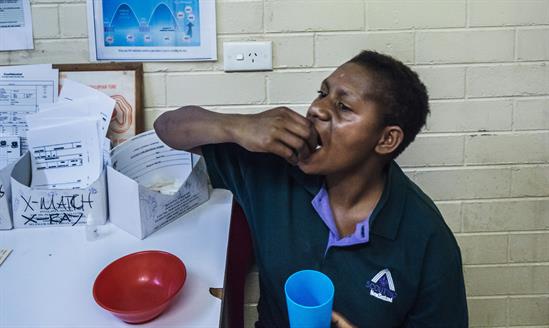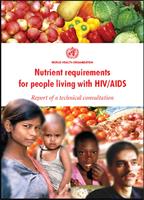Integrating nutrition into improving the prevention, care and management of HIV/AIDS
The HIV/AIDS epidemic poses an inescapable challenge to the world at large and to Africa in particular. A massive effort is needed to cushion the impact of the epidemic, and nutritional care and support should be integral elements of any action taken. An evidence-based response is required to alleviate the overall burden of malnutrition and to reduce the severity and complexity of the impact that HIV/AIDS and malnutrition have on each other. Policy-makers and actors in both nutrition and HIV/AIDS have to be reached. Clear and culturally acceptable messages are required. Innovative partnerships are needed.
Combating HIV/AIDS is the responsibility of a broad coalition of actors including affected communities, local and national governments, religious and social institutions, United Nations agencies, NGOs, the private sector and individuals. There is an urgent need for all parties concerned to take concerted action. For its part, the Department of Nutrition for Health and Development at WHO has facilitated, in coordination with other WHO departments and key partners, a number of activities to ensure a strategic comprehensive approach to the epidemic.




